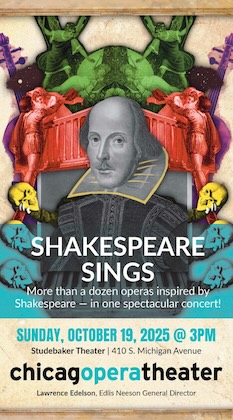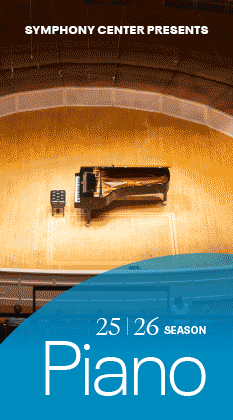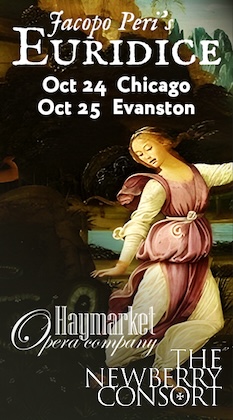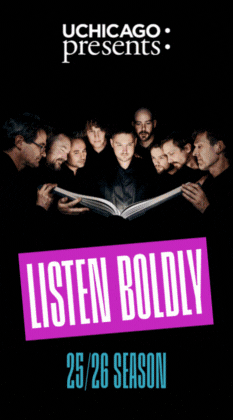Bella Voce brings fascinating early rarities out of the shadows
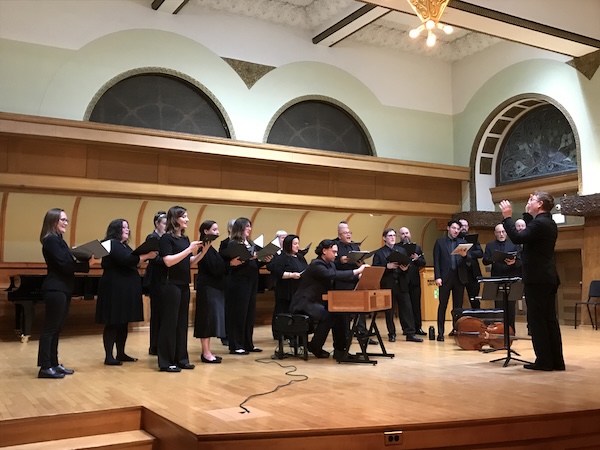
Every so often, Bella Voce takes a deep dive into worthy early choral repertoire that, for whatever reasons, has fallen through the cracks of music history. That scholarly curiosity, refreshingly free of pedantry, is one of the attributes that distinguish the Chicago professional vocal ensemble from other area groups of its type.
Director Andrew Lewis’s dauntless navigators of preclassical vocal esoterica—17 voices in all, used here in various a cappella and accompanied permutations—were at their best again in a final season program Saturday evening at Roosevelt University’s Ganz Hall.
Titled “Expanding the Canon,” the program of 16th- and 17th-century choral pieces was conceived and curated by Liza Calisesi Maidens, an assistant professor and director of choral activities at the University of Illinois-Chicago. Focusing on largely obscure Old and New World composers of the late Renaissance and early Baroque, it grew out of presentations Maidens and her research partner, Katy Maguire Lushman, have made at various American Choral Directors Association conferences.
Their object, per the program title, is to help bring more of this music (much of it unpublished and available only in manuscript) into the Western choral canon where it belongs.
If creative musicians like Maddalena Casulana, Caterina Assandra, Isabella Leonarda and Lucrezia Orsina Vizzana are unfamiliar to most concertgoers, there are countless other composers whose names are but brief entries in music encyclopedias and who hardly ever turn up in concert and recordings, if then. Their neglect relates in large part not to intrinsic musical quality but the prevalent misogyny of the time: In patriarchal, religion-dominated Spanish and Italian societies, it was not considered proper for women, much less people of color, to create music.
Those proto-feminist composers and literary figures who defied the societal norms—forced to create their art in the shadows—were celebrated Saturday. The quality of the results argued strongly for their prompt installation in the canon. For certain it stirred one’s anticipation of Bella Voce’s forthcoming CD containing this repertoire, due to be released in July on the Centaur label.
Framing the first half of the concert were villancicos of anonymous Spanish and Guatemalan origin that neatly set up groups of brief motets by Vicente Lusitana, Casulana, Francisco Guerrero and the much better-known Renaissance masters Palestrina and Victoria.
Back then these pieces were performed in the sonic glow of sundry chapels, churches and cathedrals. If the Ganz Hall acoustic was deficient in warmth, the clarity and directness of the venue did no disservice to the careful blend, sensitive balance, pinpoint intonation and sincere expression achieved by Lewis’s singers, who were working off editions painstakingly prepared by Maidens.
In sacred pieces by Assandra (Duo Seraphim) and Leonarda (Laudate pueri a 3 voci and Ave Regina Caelorum),one heard echoes of the musical rhetoric of Claudio Monteverdi’s masterpiece Vespers of 1610, filtered through those composers’ distinctive sensibilities. They were set off nicely by one of Heinrich Schutz’s sacred concertos, a perfect gem of sacred polyphony from the German school before Bach.
Lewis was particularly good at underscoring the catchy rhythmic impetus of the villancicos, the catch-all art-song genre derived from Spanish folk music. Included were songs attributed to indigenous Mayan musicians, the rousing performances taken from critical editions by musicologist Paul Feller-Simmons.
The purity of timbre of the nine women’s voices revealed the sophisticated craft of several motets, including the Leonarda’s inventive juxtaposition of solo voices against the full ensemble and sturdy writing for continuo, capably taken by organist Jacob Reed and cellist Anna Steinhoff. Bella Voce’s reading of Laudate pueri by the prolific 17th century Italian nun Leonarda was claimed to be its first performance in modern times.
Attributed to the 17th century Mexican poet, philosopher, dramatist and theorist Juana Inez de la Cruz, the motet Madre la de los primores proved yet another ear-catching discovery. Sor Juana, as she was known, was renowned for her surpassing intellect, having entered Mexico University at age eight and mastered Latin after only 20 lessons, according to her entry in the New Grove Dictionary.
Here, and in Vizzana’s Protector Noster Magnus, the rich layering of voices achieved by Lewis imbued the texts with a luminous vibrancy of feeling. Vicente Lusitano’s only surviving madrigal, Allor che ignuda, brought to light an obscure if compelling 16th-century Portuguese whom history books cite as the first black composer whose polyphony was published.
Seldom has scholarly sleuthing in dusty corners of early choral music yielded so many miniature treasures. More, please.
The program will be repeated at 4 p.m. Sunday at St. Luke’s Episcopal Church, Evanston. bellavoce.org
Posted in Uncategorized
